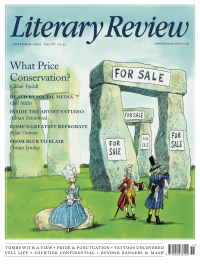Victor Sebestyen
The Theory of Everything
The World: A Family History
By Simon Sebag Montefiore
Weidenfeld & Nicolson 1,344pp £35)
Sir Walter Raleigh wrote his History of the World in prison awaiting execution. H G Wells and more recently E H Gombrich managed to fit their world histories into little more than 150 pages. But they used very broad brushes and, interesting though their works may be, they adopted the absurd expedient of barely mentioning anywhere outside Europe, a small sliver of the Middle East and North America, where less than 20 per cent of the world’s population have ever existed.
Simon Sebag Montefiore in his monumental The World: A Family History attempts something more ambitious, and he succeeds in scintillating fashion. At more than 1,300 pages, it is undeniably long, but it is an epic rich in detail – the story of our species from primeval slime to Donald Trump. Stick with it and on each page you’ll find an interesting idea, a witty observation or a footnote containing an anecdote emblematic of a wider point.
Montefiore’s novel approach is based on the argument that the family is the essential unit of human existence – even in the age of the iPhone, artificial intelligence, robotics and space travel. He uses the stories of multiple families over dozens of generations, living on every continent and in every era, to tell the human story.
It’s a refreshing structure that makes it very different from any other of the broad histories I was brought up on or have read in adulthood. Montefiore pays attention to the lives of women and children, and to places that have until very recently been slighted by Western

Sign Up to our newsletter
Receive free articles, highlights from the archive, news, details of prizes, and much more.@Lit_Review
Follow Literary Review on Twitter
Twitter Feed
Under its longest-serving editor, Graydon Carter, Vanity Fair was that rare thing – a New York society magazine that published serious journalism.
@PeterPeteryork looks at what Carter got right.
Peter York - Deluxe Editions
Peter York: Deluxe Editions - When the Going Was Good: An Editor’s Adventures During the Last Golden Age of Magazines by Graydon Carter
literaryreview.co.uk
Henry James returned to America in 1904 with three objectives: to see his brother William, to deliver a series of lectures on Balzac, and to gather material for a pair of books about modern America.
Peter Rose follows James out west.
Peter Rose - The Restless Analyst
Peter Rose: The Restless Analyst - Henry James Comes Home: Rediscovering America in the Gilded Age by Peter Brooks...
literaryreview.co.uk
Vladimir Putin served his apprenticeship in the KGB toward the end of the Cold War, a period during which Western societies were infiltrated by so-called 'illegals'.
Piers Brendon examines how the culture of Soviet spycraft shaped his thinking.
Piers Brendon - Tinker, Tailor, Sleeper, Troll
Piers Brendon: Tinker, Tailor, Sleeper, Troll - The Illegals: Russia’s Most Audacious Spies and the Plot to Infiltrate the West by Shaun Walker
literaryreview.co.uk